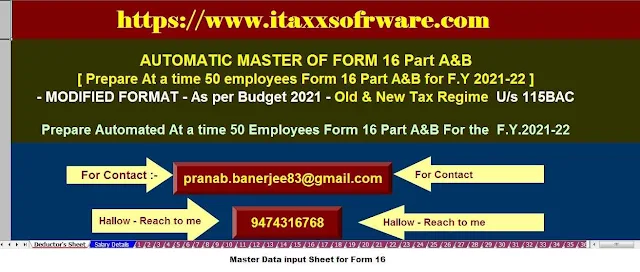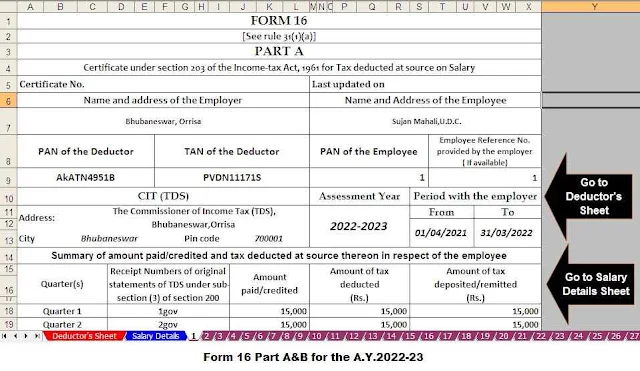Section 80D - Health Insurance - Applicability, Deductions and Rules.| Medical emergencies always
take us by surprise. It's always better to be safe than sorry, and this is no exception when it comes to
health insurance.
Most of the Indian population is not covered by health insurance and depends on their savings or loans for medical emergencies. A mandatory element of your investment portfolio is that the government encourages everyone to purchase health insurance and allows you to take advantage of the section 80D tax deductions.
What is Section 80D?
Any individual or HUF may claim a deduction from their gross income for health insurance premiums paid in any year pursuant to section 80D. This deduction is also available for supplemental health plans and critical illness plans.
The deductible benefit is available not only for the health plan itself, but also for the purchase of a policy to cover a spouse, dependent children, or a parent.
The best part is that this is above the deductions claimed under section 80C.
Who is eligible for a section 80D deduction?
The deduction of health insurance premiums and medical expenses for the elderly is allowed only for the category of individual taxpayers or HUF.
Private taxpayers or HUF, insurance can be used for:
Myself
Wife
dependent children
Parents
Any other organization cannot claim this deduction. For example, a company or business cannot claim a deduction under this section.
Payments Deductible Under Section 80D
An individual or HUF may request a deduction under Section 80D for the following payments:
The health insurance premium is paid for yourself, your spouse, children or dependent parents in any way other than cash.
Expenses for preventive examination
Medical expenses incurred for the health of older people (age 60 and over) that are not covered by any health insurance program.
A contribution paid to the central government health care system or any other program reported by the government.
The deduction is available under section 80D.
The allowable deduction under Section 80D is Rs 25,000 per financial year. For pensioners, the allowable deduction limit is Rs 50,000.
Individual:
An individual can apply for a deduction of up to Rs 25,000 for self, spouse and dependent children insurance.
An additional/separate parental deduction is available at Rs 25,000 if your parents are under 60 or Rs 50,000 if your parents are over 60.
If both the taxpayer and the parents are over 60 years of age for whom health insurance was obtained, the maximum deduction that can be used under this section is Rs 1,000,000.
The elderly refers to the elderly and the elderly over 60 years of age.
HUF may request a section 80D deduction from a claim received from any member of HUF.
This deduction will be Rs 25,000 if the insured is under 60 and Rs 50,000 if the insured is 60 or older.
What is a preventive examination up to 80 D?
In 2013-2014, the government introduced a deduction for preventive medical examinations to encourage citizens to be more proactive about their health. The idea of preventive health check-ups is to detect any diseases and reduce risk factors at an early stage through frequent check-ups.
Section 80D includes a Rs 5,000 deduction for any fees for preventive medical examinations. This deduction will be within the general limit of Rs 25,000 / Rs 50,000, as the case may be.
This deduction may also be claimed by a person for themselves, for their spouse, for dependent children, or for parents. Payment for preventive medical examinations can be made in cash.
Unified premium insurance policies
The 2018 budget introduces a new provision on claiming deductions for single premium insurance policies.
Under the new regulation, if a taxpayer has paid a fixed premium for a policy with a term of more than one year in just one year, he can claim a deduction equal to the appropriate part of the amount provided for in section 80D.
The corresponding share is obtained by dividing the fixed insurance premium by the number of years the policy is valid. However, this will again be subject to limits of Rs 25,000 to Rs 50,000, depending on the circumstances.
Things to Keep in Mind When Buying Health Insurance to Claim an 80D Deduction
A health insurance premium paid for a sibling, grandparent, aunt, uncle, or any other relative cannot be claimed as a tax credit.
A bonus paid on behalf of working children cannot be used to claim a tax credit.
In the case of partial payment by you and a parent, both of you can request a deduction for the amount paid by each.
The deduction must be made without specifying the service charge and tax on the premium amount.
The group health insurance premium provided by the company is non-deductible.
The premium paid by any method other than cash is allowed to be deducted. Therefore, it is also possible to deduct the premium paid by credit card or another online method.








